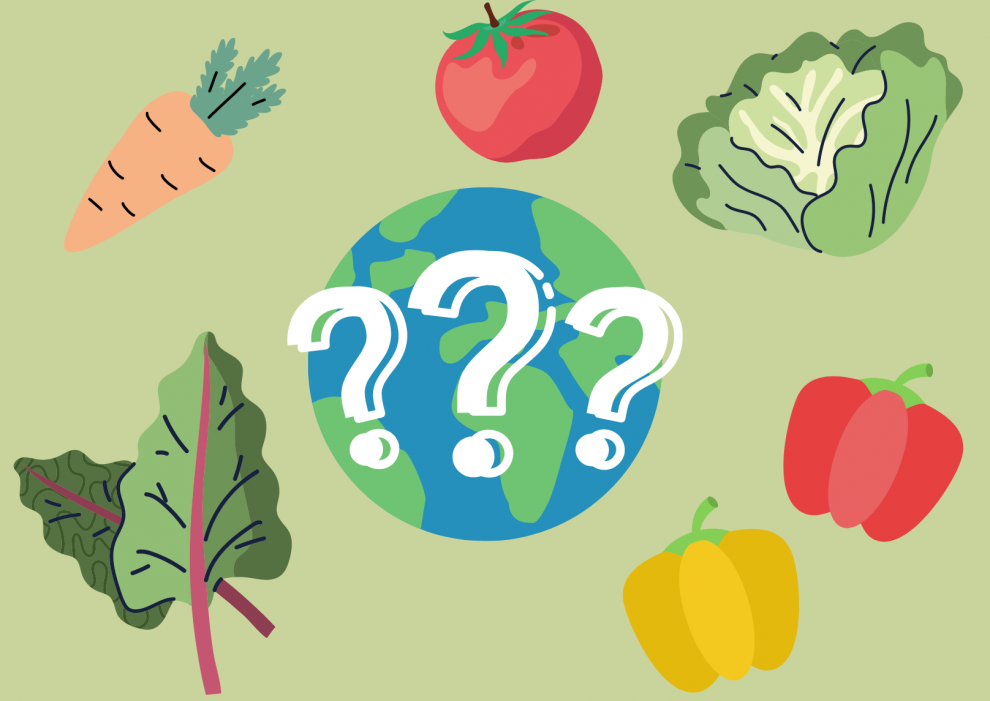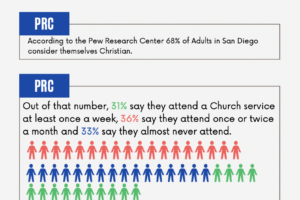The views and opinions expressed are those of the author and do not necessarily reflect the official policy or position of The Point. Letters to the editor and opinion columns are subject to editing for length, taste, grammar and clarity. Any content provided by our op-ed contributors are of their opinion and are not intended to malign any religion, ethnic group, club, organization, company or individual.
Environmental and ethical concerns with the production of animal products often lead people to plant-based diets. However, there are some important things to consider before eliminating meat, eggs and dairy from a nutrition plan.
There are nutrients found in animal products that are more difficult to obtain if someone consumes only plants. Vitamin B-12 is only found in animal products and is necessary to produce red blood cells that carry oxygen through the human body. Cindy Swann, director of PLNU’s Didactic Program in Dietetics, said, “If someone on a plant-based diet is making wise choices — eating mostly unprocessed foods and choosing a wide variety of plant foods — they can easily obtain all nutrients with the exception of vitamin B-12.”
Thus, it is critical for plant-based nutrition plans to include fortified plant foods or supplements with vitamin B-12.
Other nutrients provided by animal products include vitamins A and D, as well as minerals like iron, zinc and magnesium, which are especially present in red meat. In a strictly plant-based nutrition plan, Swann said, “Vitamin D, found in fatty fish, egg yolks and fortified dairy products, is also difficult to obtain.”
Sun exposure without sunscreen or makeup is an option for obtaining vitamin D, but it can also be sourced from nutritional supplements.
It is also important to consider that eliminating animal products is not the only way people can help mitigate environmental and ethical issues of factory farming.
In the U.S., 99% of farmed animals are part of Concentrated Animal Feeding Operations (CAFO), where large populations of animals are raised in extremely confined spaces. Despite this, there is a growing number of farms focused on raising pastured animals and making ethically and environmentally sourced animal products available to the broader population.
These animal products can be found at grocery stores across San Diego and are more widely available through online delivery services. Consuming animal products that are labeled grass-fed/finished, non-CAFO or Ecological Outcome Verification (EOV), allows people to benefit from the nutrients found in animals and increase the demand for more sustainably sourced products. Considering that the U.S. is among the top meat consumers in the world, a shift toward consuming sustainable animal products has greater potential for changes in current farming practices than promoting a strictly plant-based lifestyle.
Making the switch to sustainably and ethically raised animal products can positively affect one’s health and the environment. Supporting sustainable grazing operations allows people to demand better practices in the production of animal products. If managed by appropriate rotation periods, livestock grazing has the benefit of improving physical properties of soil.
“80-90% of plant macronutrients consumed by cattle pass through their bodies in their waste and are returned to the pasture,” says biology professor Mike Mooring, Ph.D.
This is significant for improving soil health and our ability to combat climate change. It also contrasts CAFO, which Mooring said, “is so concentrated with manure waste that when used as a fertilizer input, results in high levels of toxic contaminants that can run off into water sources.”
Pastured animals can be healthier and less stressed than those in CAFOs, which is advantageous to consumers looking to obtain animal nutrients. “Some of the benefits of eating grass-fed beef is that it is lower in saturated fat, is a high source of omega 3 fatty acids…and it helps to increase the amount of antioxidants,” said Danielle Haber, a dietetics student at PLNU.
Most sustainable operations also refrain from using antibiotics on animals, which many people consider more ethical and beneficial for humans.
When trying to obtain essential nutrients from food, Haber said, “grocery shopping and using the caf minimally works best for me.”
Going plant-based still requires students to supplement the nutrients in animal products, and it probably won’t save our planet. Purchasing and consuming more sustainably and ethically raised animal products increases the demand for environmentally-sourced food products, and it may actually be the most effective countermovement to factory farming, which is prevalent in the U.S.
Written By: Anthony Cruz








